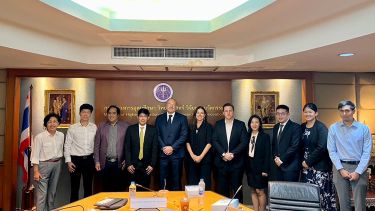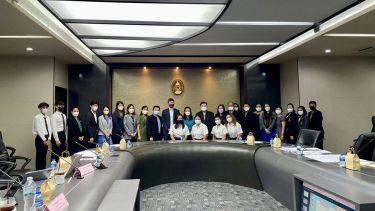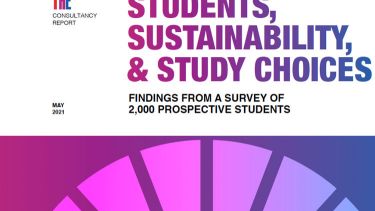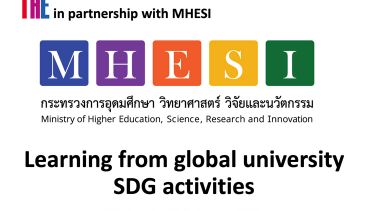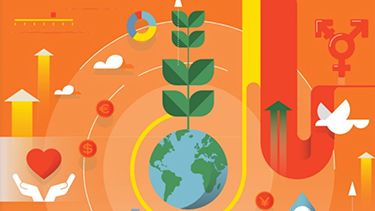
Findings from a THE Consulting survey show that students looking to study in Asia are interested in the sustainability credentials of higher education institutions and value the tools to assess these credentials
Times Higher Education’s consultancy team recently attended the 2022 THE Asia Universities Summit, held in partnership with Fujita Health University in Aichi, Japan. The summit explored how universities remain vital to a Covid-disrupted society and the ways they can serve the needs of a rapidly changing world.
During the summit, the consultancy team presented findings from its sustainability tracker survey, with a renewed focus on Asian insights, and highlighted best practice by considering submissions from top-performing Asian universities in the 2022 Impact Rankings.
Of the 3,150 students who responded to the sustainability tracker survey, 289 were currently studying in Asia or were applying to study in an Asian country as their first-choice destination. By analysing the responses of students intending to study in Asia, the consultancy team was able to compare differences in responses across demographics.
Of all the “Asia forward” students who took part in the survey, 72 per cent were aware of the United Nations’ Sustainable Development Goals (SDGs). Within this group, 29 per cent of students had limited knowledge, 22 per cent had some knowledge and 20 per cent had a good level of knowledge about the SDGs.

Figure 1: Highest priority SDGs for students
When the “Asia forward” students were asked which SDGs they consider to be their highest priority, quality education (SDG4) emerged as the top priority, receiving 39 per cent of the “Asia forward” students’ vote, compared with the global average of 33 per cent.
Quality education measures indicators such as universities’ lifelong learning efforts and the proportion of first-generation students in the population. Climate action (SDG13) and no hunger (SDG2) were the next-highest priorities for “Asia forward” students.

Figure 2: Main factors used by students to assess reputation for sustainability
Students were asked about the main factors they used to assess an institution’s reputation for sustainability. While the majority – 45 per cent – used the policies and practices at the university to assess reputation, “Asia forward” students placed a higher level of consideration – 29 per cent – on the university’s position in sustainability rankings, compared with global respondents – 24 percent. This emphasis on a tangible ranking result stresses the importance of a trustworthy ranking system that students are able to refer to when making choices about their education.
Asia remains one of the fastest-growing markets for sustainability-related activities, with steady year-on-year improvements for Asia in the THE Impact Rankings. The 2022 Impact Rankings saw Thailand and Pakistan with the largest number of new entrants, with 29 and 26 institutions participating in the rankings for the first time, respectively.
South Korea had five universities ranked in the THE Impact Rankings top 100, more than any other country. Universiti Sains Malaysia, King Abdulaziz University and Hokkaido University are notable additions to the THE Impact Rankings’ top 10.
Contact the THE Consultancy team for more information about how it provides strategic, data-driven guidance to universities and governments globally.




